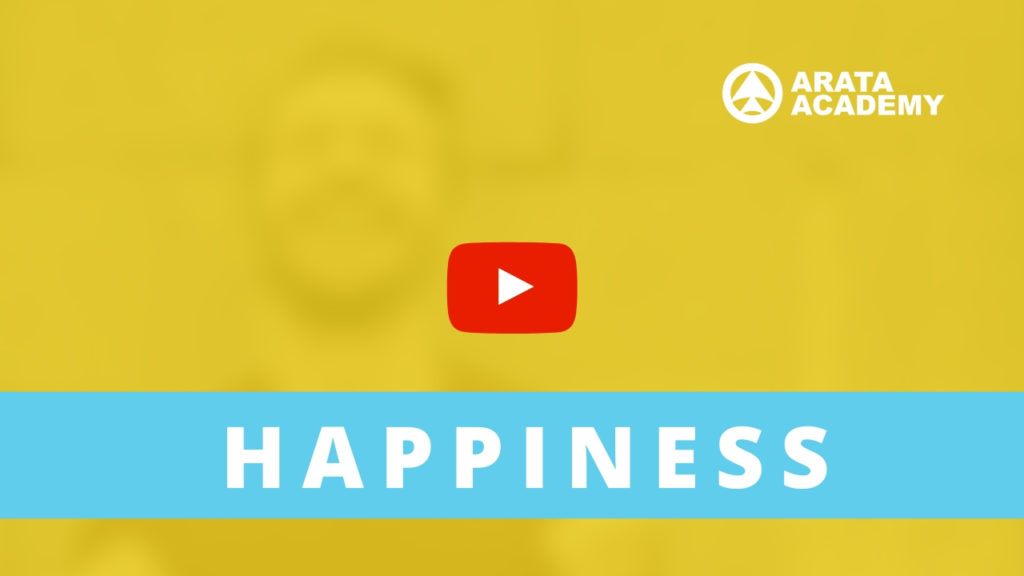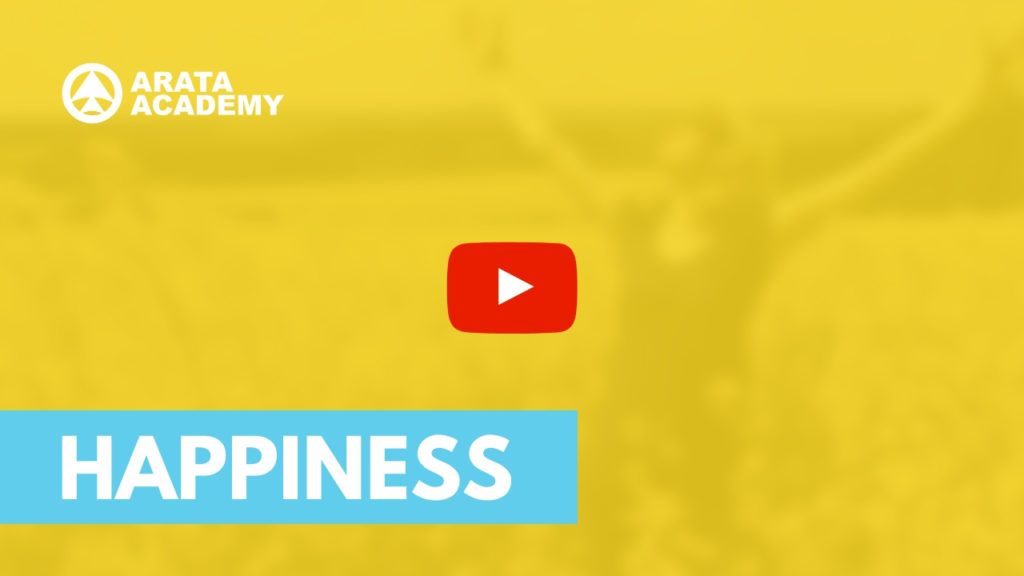Hello! Seiiti Arata. Lately, a lot has been said about mindfulness. But what exactly does that word mean? It is difficult to explain, because trying to explain mindfulness is trying to describe a mental state. And a state of mind is too abstract to be explained in words. It has to be felt.
A mental state is a psychological process. And the psychological process that most resembles mindfulness is the state of full presence.
Mindfulness is when you are absolutely focused on what you are doing, focused on the present moment, without being distracted and without thinking about the past or the future.
Mindfulness is the exit from autopilot mode.
Have you ever had the feeling of operating on autopilot? Wake up, drink coffee, run to school or work, have lunch, work again, go home, sleep and the next day it starts all over again. You do the things just because, not sure why you’re doing what you’re doing.
You have a way of being attentive and a way of being inattentive. Inattentive mode is just the autopilot. It does not mean that you are not aware of anything, you are simply not consciously aware. Your mind generates random thoughts.
Unfortunately, most people are in mental automatism. Thoughts arise automatically and we go through the days just reacting to events. Suddenly, when we realize, much of life has passed and we have suffered more than necessary.
Listen to the voices in your head to find out if you are inattentive.
To find out if you’re paying attention or not, listen to whether there are conversations inside your head. The conversation means that you are not in the present. These conversations mean that you are reliving something from the past or fantasizing about the future or making some kind of judgment. If you are in the present, focused on what you are doing at that moment, there is no mental conversation.
As human beings, we have this unique ability to get our minds out of the present and distracted by the past or the future. When you see your co-worker sitting there apparently working, perhaps he is actually thinking about his vacation last month or wondering what the next vacation will be like.
Whenever you find yourself having these conversations in your head, thinking of the past or the future, gently bring your attention back to the present moment. It is very likely that you will not be able to maintain your full attention for long. However, every little moment you can be fully aware is worth it. Soon your mind will be distracted again. When you realize this, bring your attention back to the present.
Think of it as a physical exercise. Do you know when you start working out at a gym and can barely lift a five-kilo weight? You start like this, after a few sessions you manage to lift six kilos, then seven. The evolution is not guaranteed and definitive, because if you stop going to the gym for a long time, when you return you have to pick up a lighter weight again.
Developing the ability to maintain mindfulness is very similar. You start slowly, managing to keep your attention for a short time. Soon you get distracted, then you bring awareness back to your mind, and so you gradually strengthen your ability to maintain mindfulness.
The important thing is that you do not want to lift a hundred kilos weight in the first days of the gym. A lot of people find themselves completely unable to maintain awareness, but it is that these people try to go from being totally distracted to being fully aware overnight. It is not how it works. You need to gradually train your mind. And one of the best ways to do this is by using your breath.
Breathing acts as an anchor to bring you to the present moment.
A well-known technique for bringing your mind to the present moment is to use something to focus your attention. It can be an object, an image or anything else on which you can rest your focus. The most used anchor is our own breathing, because it is always with us, wherever we go.
So in breathing exercises we want to find something to watch, like the air entering and leaving just below our nostrils. Some thoughts will appear. When that happens, just bring your attention back to the air entering and leaving your nostrils. Without judging.
When you engage your observer mode, the amount of thoughts decreases. This is quite interesting and is normal. It’s like slowing down your autopilot.
The philosophy of mindfulness has to do with being here and now, body and mind.
If I just put my attention in the hands of the autopilot, I fail to pay attention to what really matters. Life goes fast. When I’m on my way back home, I’m not even there. My body is here, in the car, on the bus, but my head is elsewhere. I have fantasies about what I’m going to do, I have movies in my head about what happened. It is an imaginary world, in which I am daydreaming, not realizing what is actually happening.
When we are focused on the present moment, we are hardly suffering. Our suffering comes from when we are clinging to a past that once was or dreaming of a future full of conditions, which is unlikely to happen the way we imagine.
So, to increase our levels of happiness, we need more awareness, we need to realize what does exist. Mindfulness is this ability to be aware of what our mind is, to be aware of what is happening here and now.
When you are more attentive to the present, you begin to realize the huge amount of moments to which you are not attentive. You don’t have to punish yourself for that. It is natural, it is good, it is a sign that you are raising your attention. You are realizing how your mind works.
Distractions and judgments are the opposite of mindfulness.
A good way to understand what mindfulness is, is to understand what it is not. Understanding its opposite, it may be clearer to understand the concept.
Most of us behave in a distracted way, judging everything that happens around us. People in general don’t just look at things as they are.
You can even see people commenting things like “I can’t believe he said that. How absurd, he probably votes for whatever political party. These voters are killing the country, blah blah blah”.
Mindfulness is the vision that arises from paying attention intentionally to the experience of the moment, without judging or evaluating. I am aware of what happens.
We are not saying that you need to stop thinking. What you want to do is simply to observe reality as it is, without constantly making judgments that, in the end, only bring suffering to your mind, only decrease your levels of happiness.
Another way to understand mindfulness is that it is a state in which your attention is not distracted by something other than what is happening now. If you were aware, your attention or mind would be on your family when you are with your family and at work when you are at work and so on.
What is amazing about mindfulness is that you are happier when you are conscious, even if what you are experiencing is a negative or unpleasant event.
Imagine that your boss just yelled at you or you are involved in an accident. Even in these types of situations, you are likely to feel better when you are aware than when you are not.
A survey by Matt Killingsworth showed that people are less happy when they are distracted, regardless of what they are doing. For example, people are not very fond of being stuck in traffic when commuting. It is one of the most unpleasant activities, and yet they are considerably happier when they are focused only on displacement than when their mind is far away, elsewhere.
Maintaining mindfulness is a way to save your time.
Do you think you don’t have time for anything, that you seem to spend all day busy without doing much in the end? So maintaining a state of mindfulness can be a way of saving your time.
A good deal of our time is wasted on rumination. And we are happier when our minds are not distracted thinking about the past or imagining the future.
This means that we have a source of happiness within us. We just need to figure out how to not let our mind get distracted all the time. That is, discovering how to be attentive at all times is the key to happiness.
Of course, I am not suggesting that we should always be attentive at all times and remain in the present at all times. Even monks who spend a lifetime meditating and focusing on the present report that distractions continue to happen.
Having the ability to be attentive is not the same as forcing yourself to be attentive all the time. Having the ability to regulate your emotions is not the same as forcing yourself to be happy all the time.
Instead, having this ability means that you have another tool in your happiness toolkit. The tool of mindfulness. And it can help to improve your overall sense of well-being.
We have less happiness whenever our mind is distracted, clinging to events that occurred in the past or wondering how the future would be better if some conditions were to happen. And we are happier when we are fully aware of what we are doing at the present time, practicing mindfulness.
But, how do we develop this ability to be attentive? How to do specific exercises to increase our ability to focus?
I invite you to visit this link to continue exploring how to use mindfulness for a happier life with full awareness.

